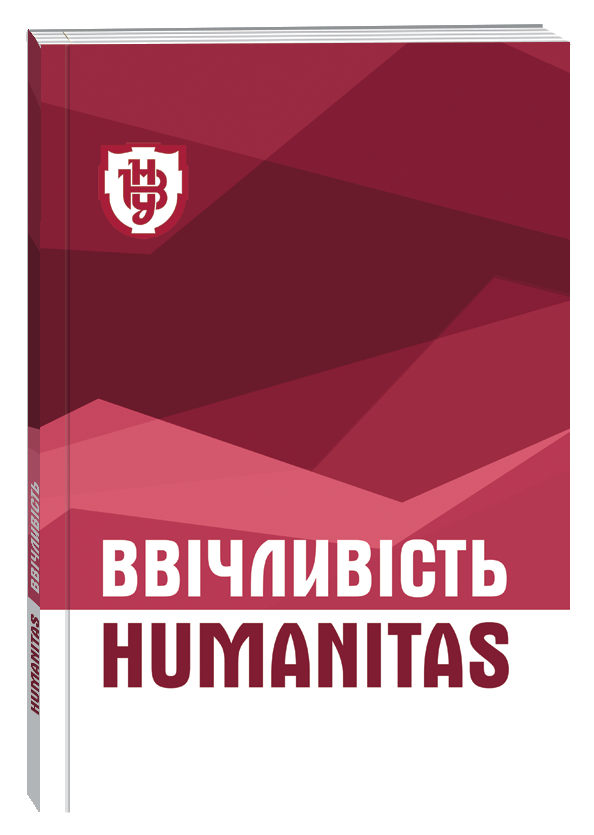EMPLOYERS AS EXTERNAL STAKEHOLDERS IN ENSURING THE QUALITY OF HIGHER EDUCATION
DOI:
https://doi.org/10.32782/humanitas/2024.1.7Keywords:
employers, external stakeholders, quality assurance of higher education, quality of higher education, higher education.Abstract
The article examines the activities of employers in ensuring the quality of higher education. The purpose of the article is to highlight the role of employers as external stakeholders in ensuring the quality of higher education: from the experience of the Faculty of Social and Psychological Education of Uman State Pedagogical University named after Pavlo Tychyna. Research methods are monitoring, analysis, systematization, generalization, survey and synthesis. The scientific novelty is that the article highlights the experience of a specific higher educational institution regarding the analysis of effective forms of cooperation with employers in ensuring the quality of training of social specialists and psychologists. We believe that in order to strengthen the practice-oriented component in the educational process of the Faculty of Social and Psychological Education of Uman State Pedagogical University named after Pavlo Tychyna and take into account the needs of the labor market, the Council of Employers was created. It was found that an effective form of cooperation with employers is professional meetings to discuss the content of educational programs (proposals are provided according to practical needs, changes and additions to current regulatory documents are studied, and ways to further improve the training of specialists are determined). According to the results of the study, ways to improve the quality of training of specialists were outlined. The results of the submitted proposals will be reflected in the content of educational programs and in the organization of the educational process, which relate to the addition or correction of professional competencies and program learning outcomes of higher education applicants; expansion of the list of formation of "soft skills" among students of higher education; introduction of new educational components that meet modern demands on the labor market; the inclusion of certain topics in the already existing educational components, which are determined by changes in legislation and compliance with socio-political changes in the country, etc.
References
Андрощук І. В., Андрощук І. П. Співпраця закладів вищої освіти із стейкхолдерами як умова підвищення ефективності підготовки майбутніх педагогів. Педагогічна освіта: теорія і практика, 2020. В. 29. С. 215–226.
Закон України «Про вищу освіту» (2014 р.). https://zakon.help/law/1556-VII/
Закон України «Про освіту» (2017 р.). https://zakon.rada.gov.ua/laws/show/2145-19#Text
Коваленко О. Поняття «стейкхолдер» та їх роль у роботі сучасного університету. Нові технології навчання, 2021. № 95, 98–105. 5. Корнещук В. Співробітництво зі стейкхолдерами як передумова якості вищої освіти. Науковий вісник Миколаївського національного університету імені ВО Сухомлинського. Педагогічні науки, 2020. № 1, 127–132.
Скляр Р. В. Участь роботодавців у підвищення якості підготовки випускників закладів вищої освіти. Збірник науково-методичних праць Таврійського державного агротехнологічного університету імені Дмитра Моторного. Вип. 24. 2021. С. 74–81. 7. Стандарти і рекомендації щодо забезпечення якості в Європейському просторі вищої освіти (2015 р.). Режим доступу: https://www.britishcouncil.org.ua/sites/default/files/standards-and-guidelines_for_qa_in_the_ehea_2015.pdf
Стратегія розвитку вищої освіти в Україні на 2022-2032 рр. Київ, 2022. Режим доступу: https://mon.gov.ua/ ua/news/opublikovano-strategiyu-rozvitku-vishoyi-osviti-v-ukrayini-na-2022-2032-roki
Сайт Уманського державного педагогічного університету імені Павла Тичини. https://udpu.edu.ua/
Сайт факультету соціальної та психологічної освіти Уманського державного педагогічного університету імені Павла Тичини. https://fspo.udpu.edu.ua/
Чорнодід І. Взаємодія системи освіти та ринку праці: проблеми та перспективи. Економічний дискурс: Міжнародний науковий журнал. 2021. В. 3-4. С. 87–95.







